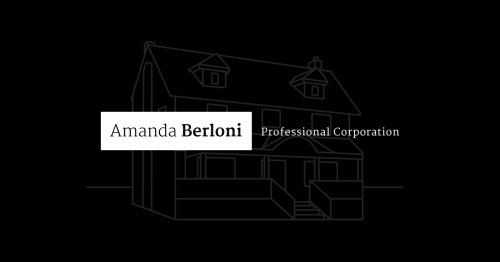Best Oil, Gas & Energy Lawyers in Greater Sudbury
Share your needs with us, get contacted by law firms.
Free. Takes 2 min.
List of the best lawyers in Greater Sudbury, Canada
About Oil, Gas & Energy Law in Greater Sudbury, Canada
Greater Sudbury, located in the heart of Northern Ontario, has a rich natural resources sector that includes significant activity in mining, energy, and related industries. While Sudbury is historically known for its mining industry, interest and investment in oil, gas, and other forms of energy - including renewables - have been growing. Legal considerations in this sector are multifaceted, involving federal, provincial, and municipal regulations. Oil, gas, and energy law in Sudbury governs land use, environmental impact, extraction rights, project development, energy distribution, and emerging industries such as bioenergy and renewables.
Why You May Need a Lawyer
Seeking legal advice is important for individuals and organizations involved or interested in the oil, gas, and energy sectors within Greater Sudbury. Common situations where legal help may be required include:
- Negotiating or reviewing contracts for resource exploration or development
- Securing permits and ensuring regulatory compliance for new or existing projects
- Dealing with environmental assessments and responding to environmental concerns or incidents
- Resolving disputes regarding land use, surface rights, or mineral rights
- Navigating joint ventures, partnerships, and mergers/acquisitions within the energy sector
- Understanding rights and obligations when renewable energy installations are proposed on private or public land
- Managing Indigenous consultation, duty to consult, and community engagement obligations
- Handling health and safety legislation specific to the energy sector
Local Laws Overview
The oil, gas, and energy industries in Greater Sudbury are governed by a combination of federal and Ontario provincial legislation, as well as municipal bylaws:
- Federal Laws: Include the Impact Assessment Act, the Canadian Environmental Protection Act, and federal legislation relating to Indigenous consultation and cross-provincial pipelines.
- Provincial Laws: The primary Ontario laws are the Oil, Gas and Salt Resources Act, Environmental Protection Act, Mining Act (when mineral rights are involved), and the Ontario Energy Board Act. These regulate licensing, drilling, production, safety standards, and environmental considerations.
- Municipal Bylaws: The City of Greater Sudbury has local land use by-laws and regulations which may impact where and how energy projects can be developed. Municipal governments can also be involved in permitting and zoning approvals.
- Environmental and Health & Safety: All oil, gas, and energy activities must comply with strict environmental controls, health and safety requirements, and rules related to the protection of water, land, and air quality.
- Indigenous Rights: Many lands in or around Sudbury have Indigenous interests. The duty to consult and accommodate Indigenous communities is a critical part of the approval process for many energy projects.
Frequently Asked Questions
What types of energy projects are common in Greater Sudbury?
Most of the energy activity in Sudbury involves natural gas distribution, electricity generation and transmission, and a growing number of renewable energy projects such as solar, wind, and bioenergy.
Can I explore or develop oil or gas resources on my property?
Generally, mineral and subsurface rights are owned by the Crown in Ontario, not property owners. You may require special permits and must comply with provincial regulations before exploration or development.
What permits do I need to start an energy project?
Permits depend on the type and scale of your project. You may need municipal zoning approvals, provincial licenses (from the Ontario Ministry of Natural Resources and Forestry or the Ontario Energy Board), and potentially federal approvals for environmental impact.
What are the main environmental considerations?
All projects must adhere to rigorous standards regarding emissions, waste management, water usage, potential contamination, and habitat disruption. Environmental assessments are often required.
How are Indigenous rights involved in local energy projects?
There is a legal obligation to consult and potentially accommodate local Indigenous communities if their rights or traditional territories may be affected by your project. This is governed by federal and provincial law.
Who regulates oil and gas drilling in Sudbury?
Oil and gas drilling is primarily regulated by Ontario’s Ministry of Natural Resources and Forestry. The Ontario Energy Board regulates broader energy activities, including distribution and retail.
What should I do if there is a land or mineral rights dispute?
You should seek immediate legal advice. Disputes require a careful analysis of land titles, mineral rights, contracts, and may involve hearings before regulatory bodies or courts.
Are renewable energy projects treated differently?
Renewable projects such as solar or wind may have specific provincial or federal incentives and different permitting channels, but must also comply with land use, environmental, and safety laws.
Can community members oppose an energy project?
Yes, residents and organizations may participate in public consultations, file objections, or request environmental reviews if they are concerned about the impact of a proposed project.
How can a lawyer help with energy contracts?
Lawyers provide crucial support in drafting, reviewing, and negotiating contracts to help you avoid unfavorable terms, ensure regulatory compliance, and protect your interests throughout the lifecycle of the project.
Additional Resources
If you need further information or support, consider contacting or consulting the following organizations and resources:
- Ontario Ministry of Natural Resources and Forestry - for licensing and regulatory guidance
- Ontario Energy Board - for regulatory issues related to energy markets
- City of Greater Sudbury - for municipal bylaws and zoning information
- Canadian Environmental Assessment Agency - for federal environmental regulations
- Indigenous Services Canada - for guidance on Indigenous consultation
- Sudbury Chamber of Commerce - for industry networking and local business support
- Local law firms specializing in energy, natural resources, or environmental law
Next Steps
If you believe you need legal advice or representation in an oil, gas, or energy matter in Greater Sudbury, consider the following steps:
- Clearly identify your needs or questions (e.g., licensing, land issues, environmental assessment, contracts, dispute resolution)
- Gather all relevant documents, permits, and correspondence relating to your project or concern
- Research and contact a lawyer or law firm experienced in oil, gas, and energy law in Ontario
- Prepare specific questions to maximize the value of your legal consultation
- Be proactive about timelines, as some regulatory or legal issues have strict deadlines
Lawzana helps you find the best lawyers and law firms in Greater Sudbury through a curated and pre-screened list of qualified legal professionals. Our platform offers rankings and detailed profiles of attorneys and law firms, allowing you to compare based on practice areas, including Oil, Gas & Energy, experience, and client feedback.
Each profile includes a description of the firm's areas of practice, client reviews, team members and partners, year of establishment, spoken languages, office locations, contact information, social media presence, and any published articles or resources. Most firms on our platform speak English and are experienced in both local and international legal matters.
Get a quote from top-rated law firms in Greater Sudbury, Canada — quickly, securely, and without unnecessary hassle.
Disclaimer:
The information provided on this page is for general informational purposes only and does not constitute legal advice. While we strive to ensure the accuracy and relevance of the content, legal information may change over time, and interpretations of the law can vary. You should always consult with a qualified legal professional for advice specific to your situation.
We disclaim all liability for actions taken or not taken based on the content of this page. If you believe any information is incorrect or outdated, please contact us, and we will review and update it where appropriate.










